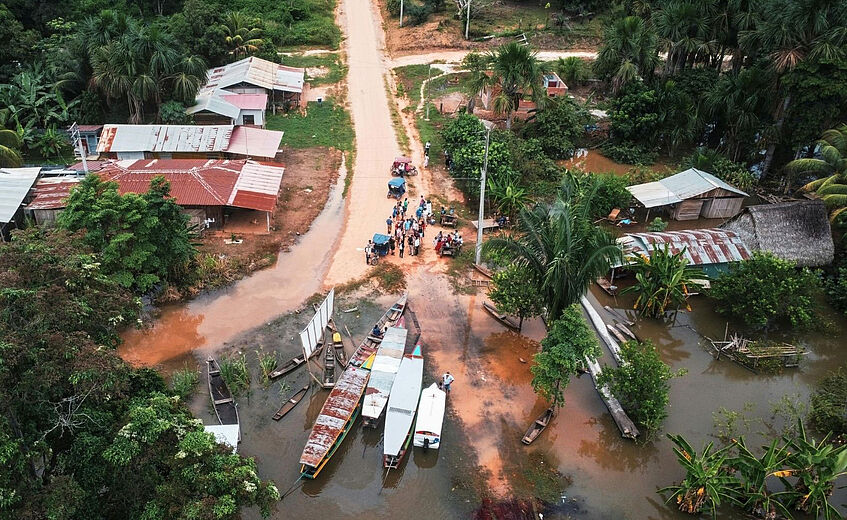Understanding
Climate Mobilities
in the 21st Century
Summer School
July 14-18

Climate change is reshaping human mobility in profound and complex ways. While some populations are displaced in the context of suddenonset disasters and weather extremes such as droughts, floods, wildfires or tropical storms, others are migrating to adapt to slow-onset changes such as land degradation, sea-level rise or coastal erosion. Understanding these complex human-environment relations and the nexus between climate change and human (im)mobilities – in both places of origin and destination – is crucial for developing sustainable responses and fostering social resilience of the affected communities.
The Summer School: Understanding Climate Mobilities in the 21st Century offers an interdisciplinary and intensive learning experience for PhD students seeking to deepen their knowledge of environmental and climate mobilities. Through lectures, workshops, and interactive discussions, participants will engage with cutting-edge research, theoretical perspectives, and innovative methodological approaches in the field of climate mobilities.
Key Themes
- Theoretical perspectives from climate displacement to migration as adaptation and climate mobilities
- Case studies on droughts, degradation, sea-level rise, storms and (im)mobility linkages
- The ethics and challenges of climate mobility research
- Methods on exploring and analysing climate mobilities: between mixedmethods, participatory multi-methods, and mobile methods
- Skill development: scientific writing and science communication
Timeline
- Day 01: Introduction to climate migration debates and scientific writing, team-building and introduction to SciComm through podcasting
- Day 02: Deep dive into migration as adaptation, hands-on training in mixed-methods, expert insights and development of a podcast storyboard
- Day 03: Exploration of translocality and resilience, continued podcast development, and excursion (tbc)
- Day 04: Critical perspectives on habitability and the climate niche, ethical reflections, and how AI changes our field of work
- Day 05: Futuring climate mobilities, career pathways, final podcast session, wrap-up
Who can apply?
Doctoral students and postgraduates planning to undertake a doctorate in this field.
Costs and Fees
There is no tuition fee for this SummerSchool, but participants are responsible for their own travel costs and accomodation.
How to Apply?
Motivation Letter (300 words)
Short Exposé of your PhD Project (if available) OR a brief description of your PhD plans and topic (1page)
Deadline: 31.05.2025 new shortend deadline: 20.05.2025
Apply here: https://forms.office.com/e/xakTjdjf3c
Contact: simon.bunchuay-peth@univie.ac.at


